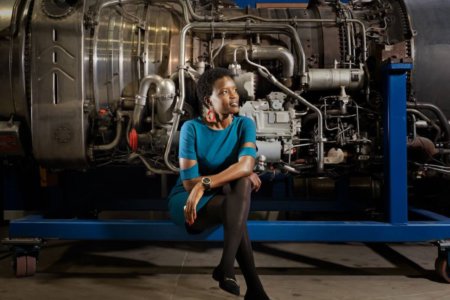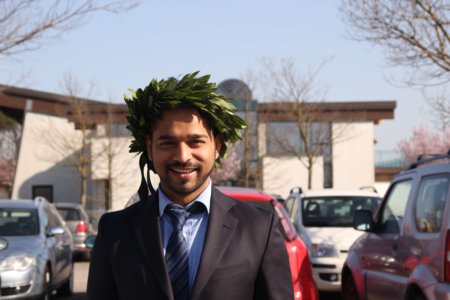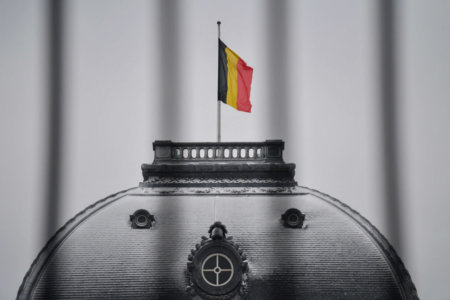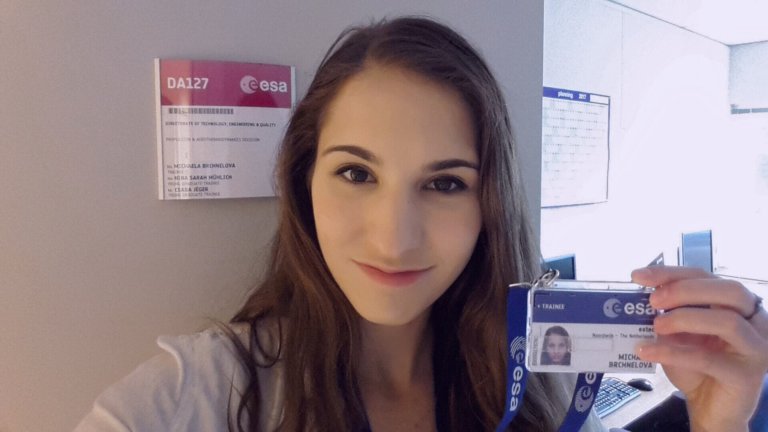
Amelia Earhart made history as the first woman to fly solo across the Atlantic Ocean in 1932. But her record 14 hours 56 minutes, problem-riddled journey from Newfoundland to Northern Ireland, was by no means her only feat. She was known to encourage women to break free from restrictive social norms.
Nearly 90 years later, Michaela Brchnelová, is picking up where the aviation icon left off. The 24-year-old is pursuing an aerospace engineering PhD at the Centre for Mathematical Plasma-Astrophysicsin Belgium and Delft University of Technology in the Netherlands.
Recently, the Bratislava native was awarded the Zonta International Amelia Earhart Fellowship worth US$10,000. The fellowship supports 35 women doctoral candidates every year. In its 83 years history, Brchnelová is the first Slovakian to win.

The fellowship supports 35 women doctoral candidates every year. In its 83 years history, Brchnelová is the first Slovakian to win. Source: Michaela Brchnelová
As much as she’s smashing stereotypes in a field where only an estimated 13% of engineers are female, she’s confronting some personal prejudice too. Living and studying in places where everything is different from home can do that to you, she says, in the best possible ways.
We caught up with Brchnelová to learn more about her passion for aerospace engineering, how she won the award and what she loves most about Belgium and the Netherlands.
Where does your passion for aerospace engineering come from?
I have always been fascinated by space ever since I was a little kid. Seeing stars perfectly aligned always made me very happy and still do. I was so determined to find out about constellations and stars in general.
I started attending an astronomy club which at first, I was a bit lost. There were only older students who were trying to enthusiastically teach me (at nine years old when I barely knew how to divide two large numbers) everything.
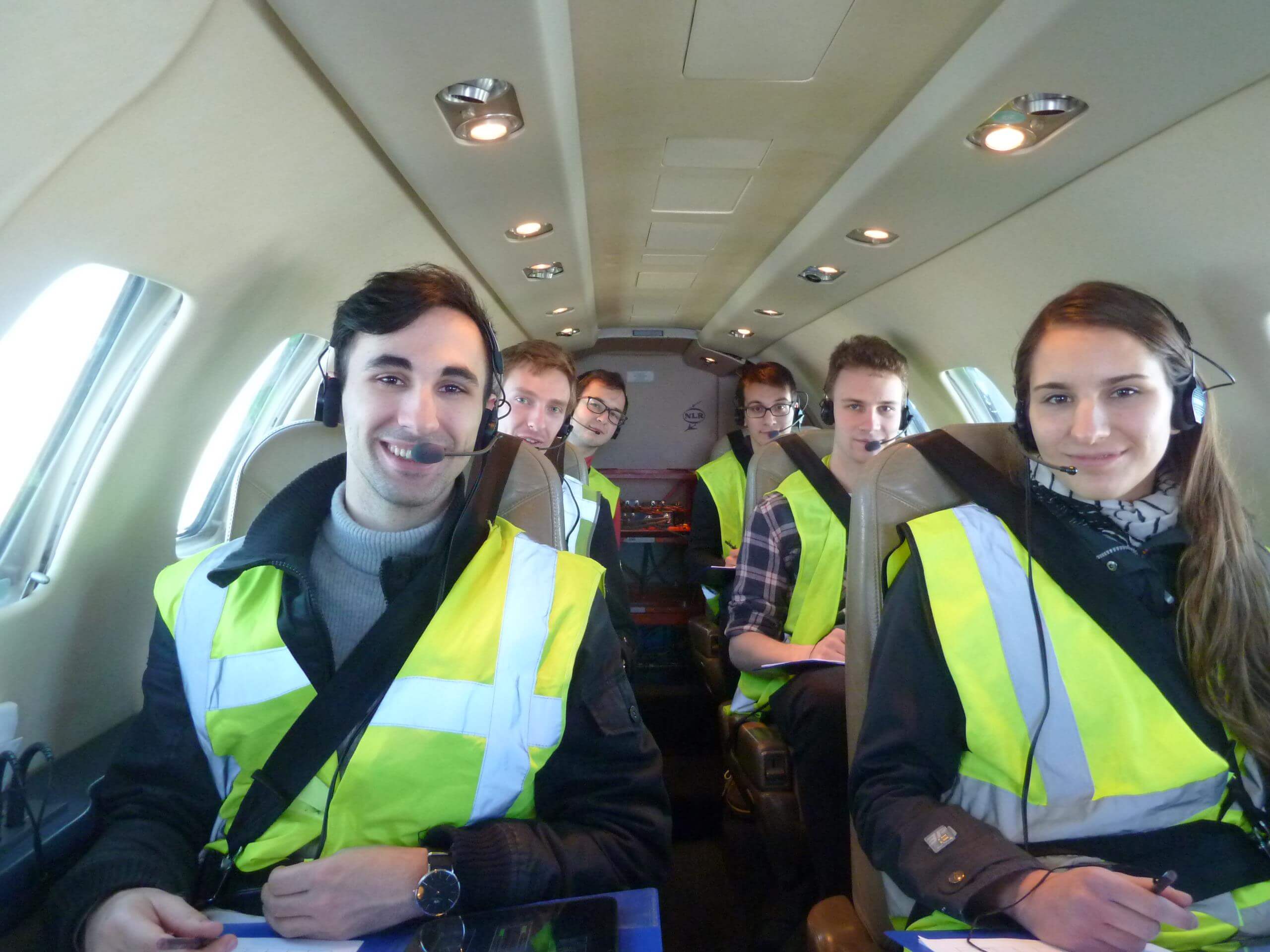
“I have always been fascinated by space ever since I was a little kid. Seeing stars perfectly aligned always made me very happy and still do,” Brchnelová says. Source: Michaela Brchnelová
They remained patient though and in time, I learnt what I needed. With that came the high school Olympiads and science contests that further persuaded me that I also want to work with space.
At first, I wanted to study astrophysics but then I also felt like doing something more relevant to society and that addresses more of our current issues. So I combined space with my need for application and went to study aerospace engineering.
In the end, that turned out to be a great choice. I was able to get my hands on building rockets and space missions and I slowly fell in love with engineering as well. Now, I am actually combining the two — plasma physics simulations both for astrophysical applications (solar research) and also aerospace engineering applications (reentry dynamics) so I’m as happy as can be.
What made you choose to study abroad?
Aerospace engineering cannot be studied in my home country, Slovakia. In Europe, student migration is a pretty common phenomenon. One aspect is obviously the fact that one can pursue high profile unis that are not available in their home countries.
Another aspect is also about moving away from home itself is very interesting for young people. Moving across the continent and having to start doing everything on your own (usually in a language you don’t understand) really does make you grow up.
It’s also these international communities at larger unis abroad that can also enrich a person like nothing else can (rid them of prejudice), make them see other people’s perspectives, and appreciate multiculturalism.
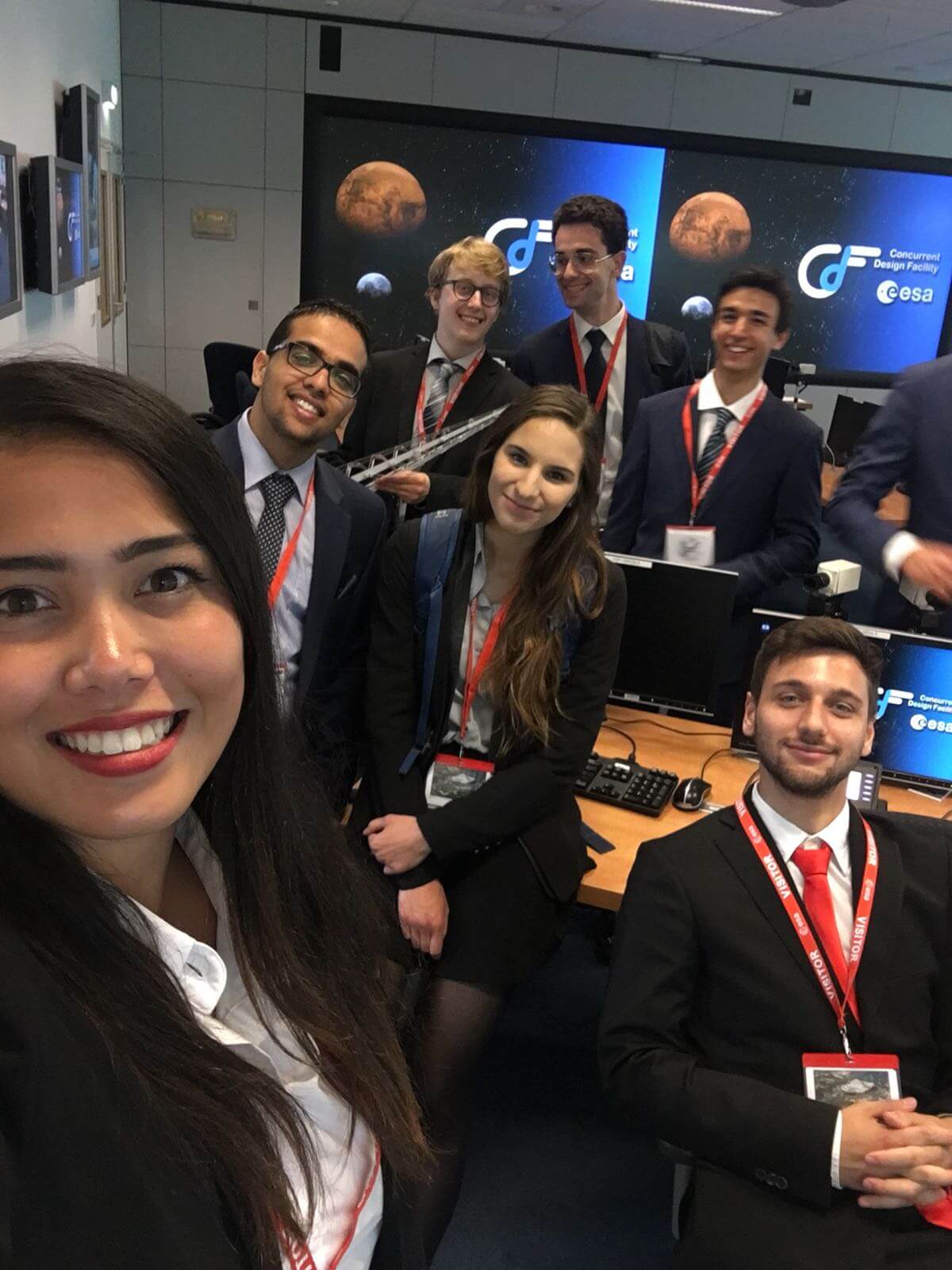
Why she chose to study abroad? “Aerospace engineering cannot be studied in my home country, Slovakia. In Europe, student migration is a pretty common phenomenon,” Brchnelová says. Source: Michaela Brchnelová
I think both the Netherlands and Belgium are wonderful places to study. The Dutch government also makes it easy for international students to get around (getting a bank account, phone number, insurance, etc are organised in collaboration with unis).
As for Belgium, the general organisation of bureaucracy and administration (setting up bank accounts and insurance) is far more disorganised and problematic. However, everyone speaks English and people are very understanding towards foreigners. Also, better beers.
Walk us through winning the Amelia Earheart Fellowship. Walk us through the application process.
I am very glad and honoured to have received a prize like this. I’m also the first person from Slovakia who won this award despite it being around for 83 years now. My home country does not do a lot of aerospace so this fellowship has filled in the blanks.
The application was relatively similar to the typical applications one makes for scholarships. You need to submit recommendation letters from past and current supervisors, a motivation letter, explain how you would use the money and a lot of evidence on why you deserve to win. That was submitted in November 2020 and then in April this year we received the results.
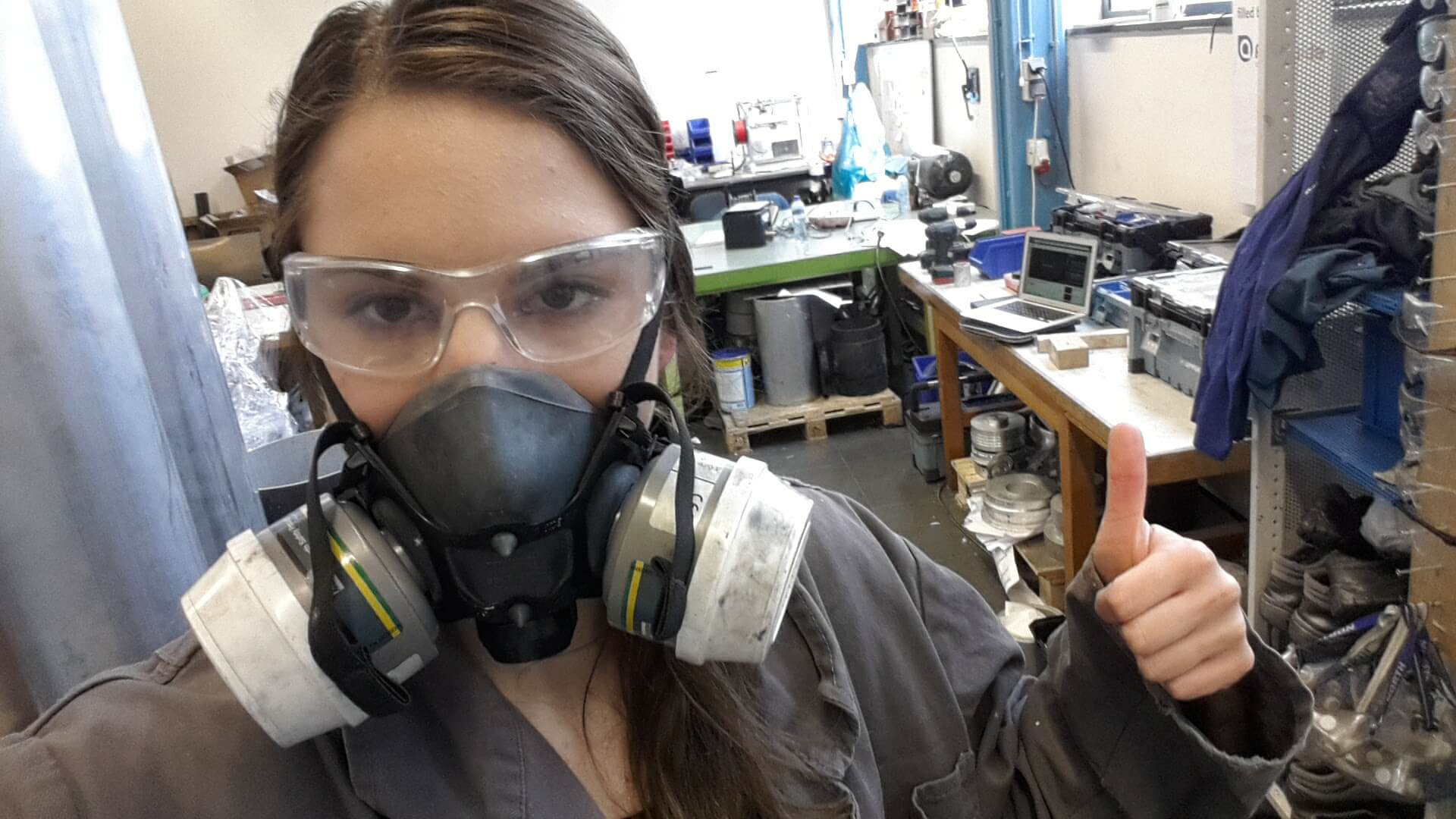
Pursuing an aerospace engineering PhD at the Centre for Mathematical Plasma-Astrophysics in Belgium and Delft University of Technology in the Netherlands is something Brchnelová is happy she stepped out of her comfort zone for. Source: Michaela Brchnelová
What do you like most about the Netherlands and Belgium?
I love the level of organisation and the system in the Netherlands. Living there is very convenient. Trains, as an example, are always on time. Secondly, I love the international culture and general attitude of the locals towards it.
Belgium should be taken as what it is. A union of three main sections: Brussels, Flanders and Wallonia. The cultures (and languages) used in these regions are somewhat different from each other so when you travel across Belgium, it does feel like you’re crossing three different countries.
Flanders is, by culture and language, very similar to the Netherlands. Wallonia is much closer to Northern France and Brussels is very international,a mixture of the other two plus all the other nationalities. I live in Flanders where I really enjoy the culture and attitude of people the most.
Walk us through what your hometown is like.
My hometown is Bratislava, the capital of Slovakia in Eastern Europe. We have a deep history with the Soviet regime before the 90s and while the consequences do not always look aesthetic, people appreciate them as they tell stories on their own.
The Slovak Castle is a must. It sits on top of the hill next to the parliament building and the view is really astonishing. It’s a mixture of feelings and history in one view which makes it much more interesting than a city in a perfect uniform style unscathed by history.
Devinska Kobyla is a wonderful nature park where you can hike and have a bit of space for yourself after long days of walking in the crowded city. A perfect little retreat into nature.
Have you explored the region in the Netherlands and Belgium?
I first moved to Delft in the Netherlands which is in the Zuid-Holland region. What I really loved there the most were the large fields of blooming tulips in April. In combination with the old windmills spread out everywhere, it was quite a perfect site for a biking trip.
I also lived briefly in Goettingen, Germany. Once we made a trip to Kassel — a nearby city — and uncovered this absolutely astonishing Wilhelmshöhe Park. It’s a breathtaking mix of nature, culture and history.
Currently, I live in Leuven in Belgium. The surrounding nature is beautiful and I also like the coastal areas. But I am most impressed with the city centre as the architecture of the buildings in the city are truly magnificent.
I go to work everyday by foot and I still have to stop and stare at the buildings even after nine months of being here. It’s a small city but it has a very rich history and the buildings can relay this. In winter everything glows with Christmas lights and sometimes snow everywhere.
What’s the local food in the Netherlands compared to Belgium like? Tell us your most and least favourite.
In Flanders, the culture, including the food, is fairly similar to what people like in the Netherlands. If I could pinpoint the local specialties for the Netherlands I would say pancakes of any kind.
In Belgium, Belgian waffles and pralines from the sweet department and proper Belgian french friends with mayonnaise which is much thicker and flavourful in comparison to your typical french fries.
Is it hard for a foreigner to order food or strike up a conversation with the locals?
Definitely not. At least not in Flanders and Brussels. Even if they don’t know how to speak English, they will use the universal hand language to help. In terms of food, all the classical networks are here (like Deliveroo) so the process is very simple.

“Europe is a wonderful place where you can easily travel from the sunny Italian beaches through mountainous Switzerland to the fjords in Southern Norway in little time,” Brchnelová says. Source: Michaela Brchnelová
What’s one thing from Belgium you’re planning to bring back to your family and friends back home?
Definitely pralines. Belgium makes amazing chocolate. Their pralines from companies like Leonidas or Neuhaus belong to the best in the world. It’s actually a thing to study chocolate-making here at specific schools (especially for kids) to be chocolate chefs. It’s taken as seriously as education.
Additionally, if carrying heavier things on planes wasn’t so expensive, I would also bring back Belgian beer since they have some of the best in Europe. The Stella Artois beer is brewed in my city in Leuven.
What advice do you have for international students looking to study in Europe?
Don’t be afraid of the cultural differences. Be aware of them and embrace them. If someone does something that is uncomfortable to you, don’t take things personally and it’s likely you will find that the given habit is completely normal in your or their culture. Instead of being scared of the differences, learn to embrace them.
I will never forget how I kissed one guy on the lips by accident in the Netherlands because they kiss three times (right cheek, left cheek and right cheek again). In my country we only kiss twice, so we ended up in a proper French kiss. Awkward, but funny!
Europe is a wonderful place where you can easily travel from the sunny Italian beaches through mountainous Switzerland to the fjords in Southern Norway in little time. Make use of this and explore as much as possible to get to know the local culture which is the ultimate way to learn about yourself as well.








